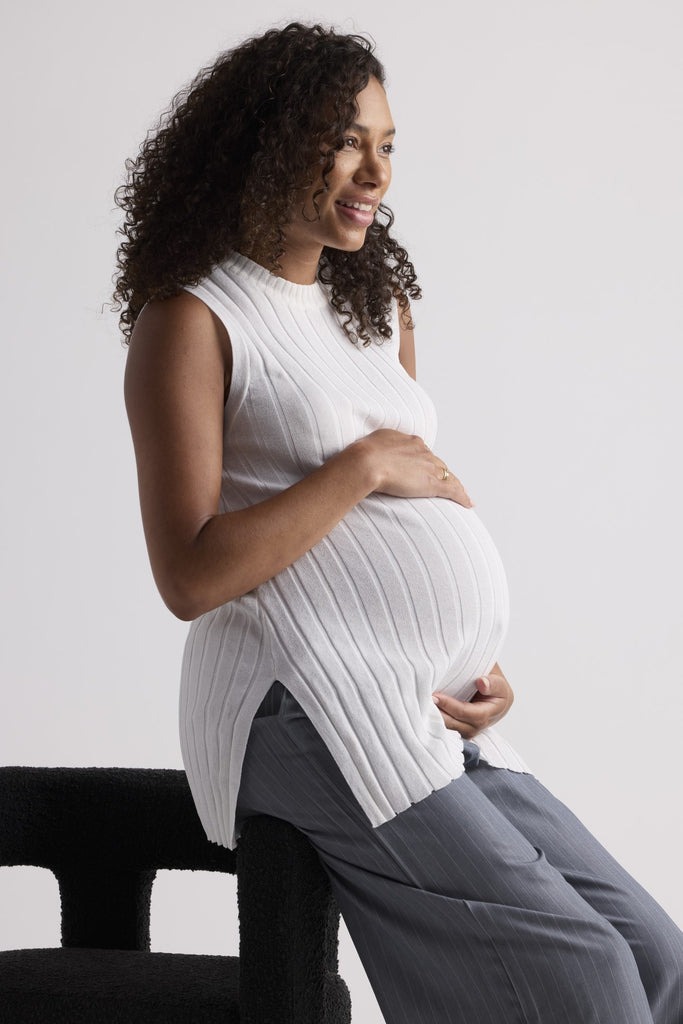
The Stages of Pregnancy: A Journey Through the Nine Months
Pregnancy is an experience that unfolds in phases over nine months, bringing about significant physical and emotional changes for both the mother and the growing baby. The initial three months, from weeks 1 to 12, involve growth as the egg attaches to the uterus and develops into an embryo. The second trimester, weeks 13 to 26, is often referred to as the "honeymoon phase," where many women feel a boost in energy levels and notice their baby bump growing. The final trimester, spanning weeks 27 to 40, is a time of preparation as the baby’s organs develop fully and the mother's body gets ready for labor and delivery. Throughout this journey, expectant mothers go through a mix of feelings, physical changes, and hormonal shifts that culminate in the joy of welcoming a life into the world. Below we will delve into each one of the phases in detail.
The First Trimester (Week 1 to Week 12)
The initial trimester is a time characterized by changes as the fertilized egg attaches itself to the uterus and starts developing into an embryo. Pregnant individuals may encounter pregnancy signs like tiredness, morning sickness, breast sensitivity, and frequent urination during this period. Fluctuations in hormones can also result in mood swings and intense emotions.
Suggestions for Dealing with First Trimester Symptoms
- Morning Sickness: Consume small meals frequently throughout the day to ease your stomach. Stay hydrated by drinking ginger tea, lemon water, or clear liquids.
- Fatigue: Listen to your body and rest when needed. Consider practicing relaxation methods like mindfulness, meditation, or gentle yoga to reduce stress and improve sleep quality.
- Mood Swings: Communicate with your partner, family, and friends about how you're feeling. Engage in activities that bring you joy and peace.
- Breast Tenderness: Opt for a bra with soft material for added comfort. Consider wearing a fitted maternity dress for additional support.
- Frequent Urination: Cut back on fluids before bedtime to minimize trips. Pelvic floor exercises can help strengthen bladder muscles and enhance control.
- Hormonal Changes: Stay hydrated and maintain a diet filled with fruits, veggies, whole grains, and lean proteins to support hormonal balance. Incorporate self-care practices for emotional well-being.
Keep in mind that every woman’s pregnancy experience is different. Listen to your body’s needs and prioritize self-care. By following these suggestions, you can navigate the challenges of the first trimester and beyond.
Physical Changes During the First Trimester
During the first trimester, the embryo develops vital organs and body systems. By week 12, the embryo is officially known as a fetus with all major organs present, though still developing. This phase is crucial for early screenings and tests to identify potential risks or genetic issues.
Many women experience a blend of excitement and anxiety as they adjust to their pregnancy. As your belly grows, ensure you invest in maternity dresses and comfortable clothing. Maintaining communication with healthcare providers can help ease fears and uncertainties during this transformative period.
Second Trimester (Week 13 to Week 26)
The second trimester is often seen as the "honeymoon phase" of pregnancy, with many women finding relief from early symptoms. This period is marked by significant changes as the uterus expands to accommodate the growing fetus. Around week 20, the mid-pregnancy ultrasound is typically performed, offering a glimpse of the baby's development and possibly determining its gender.
During this trimester, expectant mothers often experience increased energy levels and a sense of well-being. Nutrition, exercise, and prenatal care are key to supporting the baby's growth and development. Feeling the baby's movements strengthens the bond between mother and child.
Third Trimester (Week 27 to Birth)
The third trimester brings challenges and emotional fluctuations as the due date approaches. Discomforts such as backaches, swollen feet, and sleep difficulties may arise. Investing in flowy maternity dresses and comfortable shoes can help alleviate these symptoms.
Regular prenatal checkups are important during this stage to monitor the baby's growth and health. The third trimester focuses on preparing for childbirth, with expectant parents attending birthing classes, creating birth plans, and preparing for the hospital stay.
Emotionally, the final trimester can be a mix of excitement and nervousness. Building a support team, discussing birth preferences, and practicing relaxation techniques can help manage anxiety and promote a positive birthing experience.
The Journey Through Pregnancy’s Three Phases
The different stages of pregnancy provide insight into the process of bringing life into this world and transitioning into parenthood. By understanding the emotional and physical changes that occur throughout each trimester, expectant mothers can better equip themselves for both the challenges and joys that come with pregnancy. From experiencing symptoms in the first trimester to bodily transformations in the second trimester, and then preparing for childbirth in the third trimester, pregnancy is a transformative journey that requires care, attention, and support. Embracing each stage with grace and resilience can lead to a rewarding and empowering experience during pregnancy.





